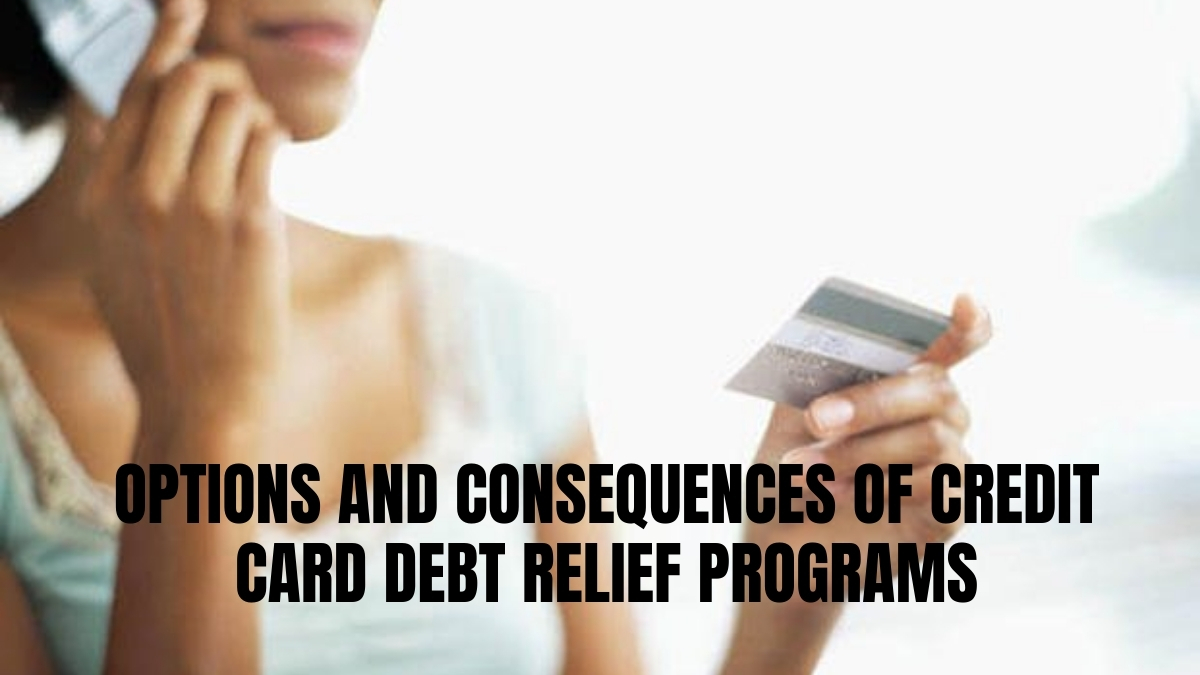Sometimes credit card debt can be overwhelming. Maybe you’ve been through a job loss and haven’t been able to make the monthly payments like you used to. The interest is adding up, as are the late fees. You aren’t sure what your options are, and if you have any, you might be afraid of the consequences these options might bring.
To that end, let’s take a look at the options and consequences of credit card debt relief programs.
Types of Credit Card Debt Relief
Credit card debt relief programs come in several different forms. You can work with your card issuers to request they lower your monthly payments and/or your interest rate, making it easier for you to make the payments on time.
You can also request forbearance, and they usually don’t have an impact on credit report, like late or partial payments would. However, they do require you to negotiate the terms with the credit card companies yourself. If that feels intimidating, you may want to look at debt relief companies to help you.
Debt Consolidation
Best for those whose credit scores are still high enough to get a low interest rate on a loan, consolidation essentially moves your outstanding balances into one loan. The befit here is the lower interest rate will save you money in the long run. You’ll also have fewer accounts to manage each month, which can make keeping up with your finances easer.
Credit card debt consolidation can take a number of different forms; these include low/no interest balance transfer credit cards, personal loans and home equity lines of credit.
However, it’s important to remember consolidation does not clear your debt; you’ll still owe the money. However, the transferred accounts will show zero balances, which can tempt you into using them again. Doing so before you pay off the transfer is a bad idea, because you’ll be digging yourself a deeper hole.
Debt Counseling/Management
Enrolling in a debt counseling program will get you the services of a professional who can look your situation over with fresh eyes. They might see a way to cover your obligations just by moving a few things around in your budget. They can also help you in terms of managing your accounts better in general.
A management program might be suggested if your situation is such that moving things around won’t do any good. In that case, he counselor will offer to take over payment of your accounts and negotiate with your creditor for easier payoff terms.
The upside is you could pay less to dispense with your debts. The downside is you’ll surrender control of your finances to a third party, which could entail closing certain accounts or agreeing not to use them until you’re back in the black.
Debt Settlement
A debt settlement company will review your accounts to determine your best course of action. They will then negotiate settlements with your credit card issuers to agree to let you pay back lower amounts than you owe if that is deemed to be the most prudent approach.
You’ll stop paying your creditors directly and instead deposit the money into an account from which the agreements will be paid, when there’s enough money in them to fund a settlement deal in full with a one time payment of the agreed upon amount. You can learn more about this option at the Freedom Debt Relief web site.
While this can be an effective option, it can do some damage to your credit rating. However, your credit score has likely already suffered if this is your most viable option.
Consider Carefully
Before deciding on the plan that is right for you, weigh the pros and cons of each one. It’s important to look at the problem from as many different angles as possible so you can make the most advantageous decision.












